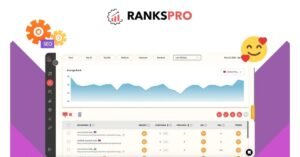
Fox Signals – AI Driven Cryptocurrency signals App
Overview Fox Signals is an AI-driven cryptocurrency trading app designed for professionals seeking precision. Its advanced algorithm operates 24/7, analyzing

Overview Fox Signals is an AI-driven cryptocurrency trading app designed for professionals seeking precision. Its advanced algorithm operates 24/7, analyzing

What is Linkly? Linkly simplifies link building with a curated network of high-quality backlink opportunities. It supports diverse strategies, including

What is SheetMagic? SheetMagic is an innovative tool designed to streamline content creation by integrating ChatGPT with Google Sheets. It

What is RanksPro? RanksPro is an advanced SEO platform designed to empower technical professionals. It simplifies the complexities of search

What is Aimfox ? Aimfox is a cutting-edge tool designed for professionals seeking efficiency and precision in their projects. It

What is SuperCopy.ai? SuperCopy.ai is an advanced AI-powered content generation tool designed to create persona-driven content based on brand and